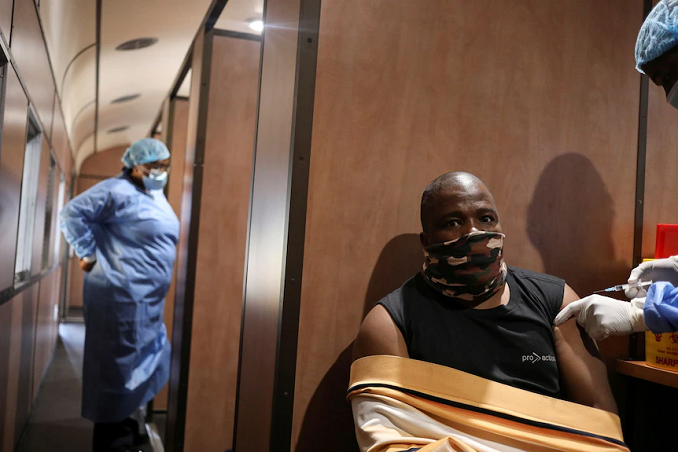Last updated on November 27th, 2021 at 09:06 am
South Africa – The new highly mutable Covid-19 variant is rocking the African continent, now leading to a travel ban to be imposed by the United Kingdom as the first point of protection to its own.
The travel ban is now imposed on six African countries. In a swift response, to Britain’s announcement of suspending flights from these African nations, South Africa’s government has urged all South Africans to “…vaccinate and to remain disciplined in applying the known safety measures…”.
Their response to the official British decision was quick. Tweeting from his official handle, the South African President Matamela Cyril Ramaphosa said, further communication will come through once the nations have decided what needs to be done.
It is being estimated that the new variant is vaccine-resistant. This isn’t good news as festivity is the air and a flavor of Christmas cheers are being felt in the West. According to an official statement made by the South African Health Minister, Joseph Phaahla, “Initially it looked like, you know, it was just some cluster outbreaks, maybe gatherings and so on. But from yesterday, indication came from our scientist colleagues from the network for genomic surveillance so that indeed they were observing what looked like a new variant.”
Related Posts
Earlier on, it was looking like the African continent would be able to handle the outbreak by completing its vaccination drive. As of now, flights from South Africa, Namibia, Lesotho, Eswatini, Zimbabwe and Botswana stand suspended.
Germany, Israel, and Italy have also banned entries from South Africa with Czech Republic expecting to join the list on Saturday. The new variant is currently identified as B.1.1.529.
An official statement about precautions, line of treatment, and care is yet to come from the World Health Organisation (WHO). Belgium has become the first European nation to have reported its first case. “Early indications show this variant may be more transmissible than the delta variant and current vaccines may be less effective against it,” British Health Secretary Sajid Javid told lawmakers. “We must move quickly and at the earliest possible moment,” he said.

